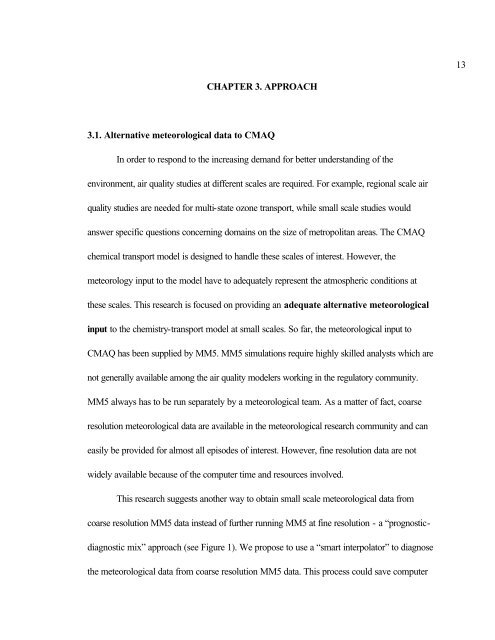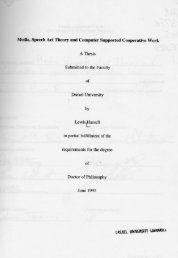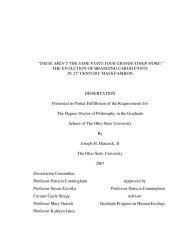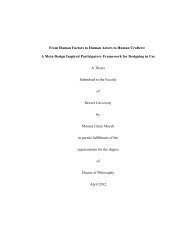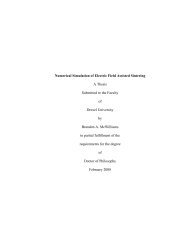Alternative small scale meteorology input to a chemical transport ...
Alternative small scale meteorology input to a chemical transport ...
Alternative small scale meteorology input to a chemical transport ...
You also want an ePaper? Increase the reach of your titles
YUMPU automatically turns print PDFs into web optimized ePapers that Google loves.
CHAPTER 3. APPROACH<br />
3.1. <strong>Alternative</strong> meteorological data <strong>to</strong> CMAQ<br />
In order <strong>to</strong> respond <strong>to</strong> the increasing demand for better understanding of the<br />
environment, air quality studies at different <strong>scale</strong>s are required. For example, regional <strong>scale</strong> air<br />
quality studies are needed for multi-state ozone <strong>transport</strong>, while <strong>small</strong> <strong>scale</strong> studies would<br />
answer specific questions concerning domains on the size of metropolitan areas. The CMAQ<br />
<strong>chemical</strong> <strong>transport</strong> model is designed <strong>to</strong> handle these <strong>scale</strong>s of interest. However, the<br />
<strong>meteorology</strong> <strong>input</strong> <strong>to</strong> the model have <strong>to</strong> adequately represent the atmospheric conditions at<br />
these <strong>scale</strong>s. This research is focused on providing an adequate alternative meteorological<br />
<strong>input</strong> <strong>to</strong> the chemistry-<strong>transport</strong> model at <strong>small</strong> <strong>scale</strong>s. So far, the meteorological <strong>input</strong> <strong>to</strong><br />
CMAQ has been supplied by MM5. MM5 simulations require highly skilled analysts which are<br />
not generally available among the air quality modelers working in the regula<strong>to</strong>ry community.<br />
MM5 always has <strong>to</strong> be run separately by a meteorological team. As a matter of fact, coarse<br />
resolution meteorological data are available in the meteorological research community and can<br />
easily be provided for almost all episodes of interest. However, fine resolution data are not<br />
widely available because of the computer time and resources involved.<br />
This research suggests another way <strong>to</strong> obtain <strong>small</strong> <strong>scale</strong> meteorological data from<br />
coarse resolution MM5 data instead of further running MM5 at fine resolution - a “prognostic-<br />
diagnostic mix” approach (see Figure 1). We propose <strong>to</strong> use a “smart interpola<strong>to</strong>r” <strong>to</strong> diagnose<br />
the meteorological data from coarse resolution MM5 data. This process could save computer<br />
13


